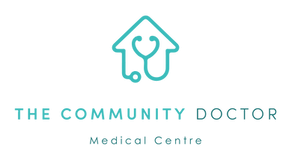If you are planning to become pregnant, doctors can provide helpful and supportive medical advice to you and your partner. It is also an important time to make healthy lifestyle changes.
Trying to conceive?
Below is a list of changes you can make before trying to conceive:
Quit smoking
- Smoking increases the risk of miscarriage, premature labour and low birth weight, which can be detrimental to a babies overall health
Optimise body weight
- Obesity can affect your pregnancy, putting you at risk of gestational diabetes
- Being underweight can affect your fertility and affect the development of your baby
Limit alcohol intake
- It is best to avoid drinking when trying to conceive
Regular exercise
- Aim for 2 – 5 hours of moderate-intensity exercise per week. Approximately 30 minutes a day.
Eating a variety of foods during pregnancy ensures you and your baby are getting your nutritional needs.
Healthy weight gain during pregnancy is normally around 11-16 kg, if you are normal weight.
A healthy pregnancy diet
A healthy pregnancy diet should consist of:
- Whole grains: 8 serves per day (1 serve = 1 slice bread, 0.5 cup of rice or pasta)
- Protein: 3.5 serves per day (1 serve= 65 g red meat, 80 g chicken, 100g fish, 30 g nuts, lean meats are best)
- Vegetables: 5 serves per day (1 serve = 0.5 cup of vegetables, 1 cup salad greens, 0.5 potato)
- Fruit: 2 serves per day (1 serve = 1 apple or banana, 2 small fruits apricot or plum)
- Calcium: 2.5 serves per day (1 serve= 250 ml milk, 2 slices of hard cheese, 200 g of yoghurt)
- Iron: 27 mg per day (ensure to regularly check your iron levels with your doctor, as many women need iron supplements while pregnant)
Limit foods that are high in saturated fat, sugar and salt, as these are fattening and nutrient poor. It is also important to limit your exposure to Listeria prone foods (unpasteurised cheeses and deli meats).
Ensure food is cooked to limit your risk of food poisoning. Avoid any pre-prepared/ pre-made salads or meals. Salmonella can increase the risk of miscarriage and is found in raw eggs as well as undercooked meat and poultry.
What should you speak to your doctor about?
When was your last cervical screening test?
- Be up-to-date (in the last 5 years), especially if you have any past abnormalities
Vaccinations
- Most likely, you will need a rubella and chickenpox booster. Pregnant women are at high risk of these diseases.
- You will need to wait 1-2 months after having these vaccinations to conceive so that you are protected and can pass the immunity to your baby
Blood tests
- Your doctor can check your immunology and see what vaccinations you may need
- Will show any deficiencies you have such as iron and vitamin D which require supplements
Is your menstrual cycle regular?
- Your doctor will be able to advise whether this could affect your fertility and when is the best time to conceive
Medications
- Your doctor will be able to assess your regular medications if they are to be taken during pregnancy and/or breastfeeding
Trouble with conceiving
- Your doctor can help identify if you or partner have fertility issues and what tests are available for you

